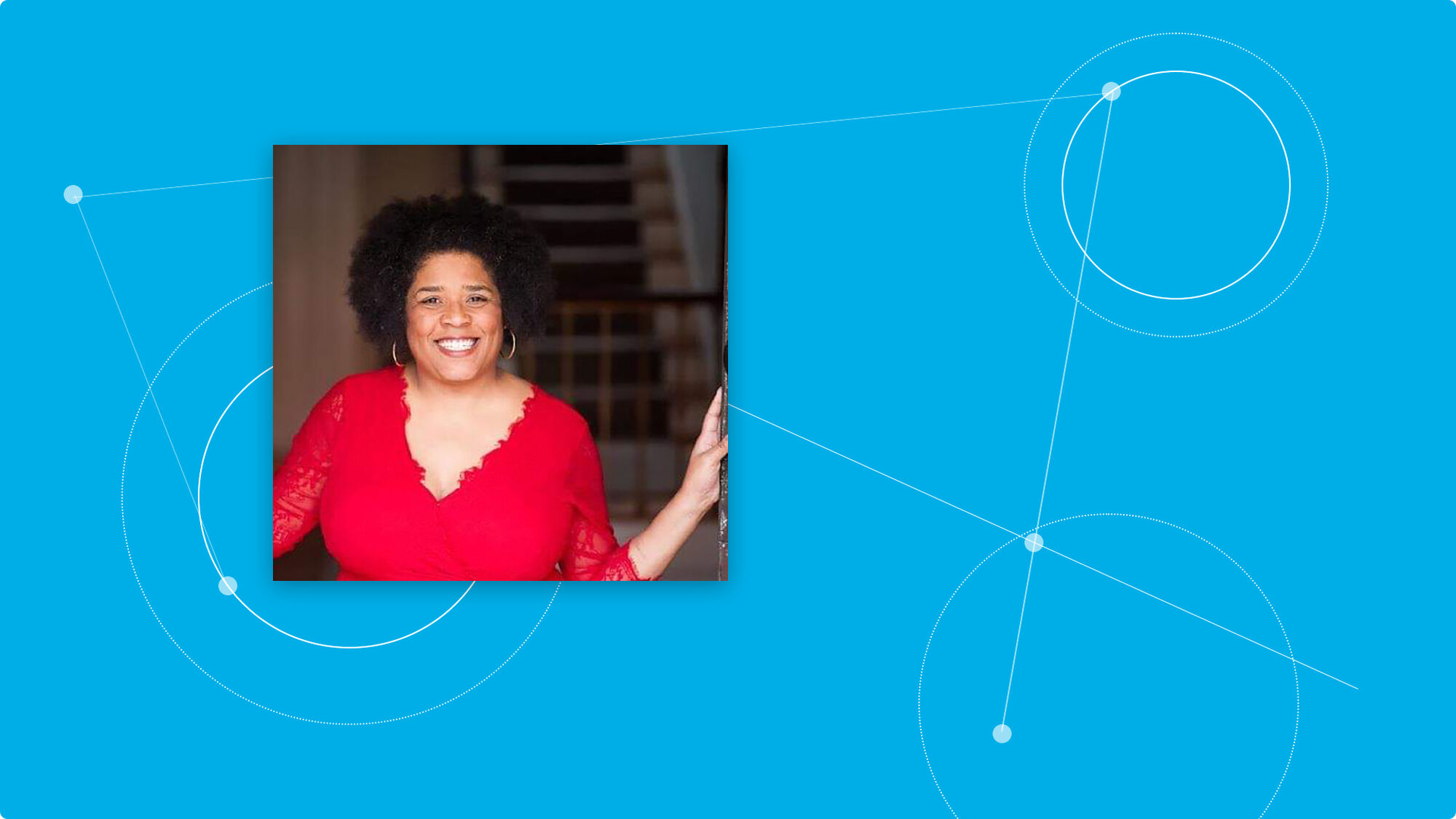A boy in Aeriale Johnson’s class is upset. Johnson—Ms. J to her students—teaches 3rd grade at Washington Elementary in San Jose, CA, a school whose population is mostly students of color, 74% of whom are multilingual language learners.
An associate director for the San Jose Area Writing Project, Johnson also serves on NCTE’s Elementary Steering Committee and publishes a blog, Kinderbender, full of insights from her 23 years of teaching. Her teaching methods are rooted in antiracism and a passionate belief in her students’ intelligence and their right to express themselves freely.
This particular day, one boy is angry because he has just learned that a police officer has been acquitted in the killing of a Black man. He shares about it in the morning circle. Later, Aeriale takes him aside, “I can see you have a lot of feelings and questions about what happened that you still want to process," she says. "How about you use your writing time to do that?"
The next day, when the boy is ready, he decides the police need a checklist for when they should shoot, "just like we need a checklist for our writing to make sure we’ve got everything in there." His checklist reads, in part:
Watch before you shoot
Take out gun when you need to
Use gun properly
Use electric gun if needed
First use nonlethal weapon to make enemy idle
First think if you were shooting your family would you do it
After sharing time, another child in the class says, "Ms. J, can you make some copies of this at lunch so I can pass them out to the cops in my neighborhood?"
In Johnson’s classroom, writing is bristling with life, driven by what students actually care about and what touches their daily experience. "The most powerful thing we can do as teachers is listen," says Johnson. Her students know that the classroom is their space and their lives, in a very real sense, are the curriculum.
All too often, school erases the lived experience of students of color. "We have to be conscious to ensure we’re making children visible," says Johnson. She promotes racial literacy by using reading, writing, and discussion to encourage students to think critically about their circumstances. "Why is everyone in this neighborhood Mexican? There’s something going on here. How come just one mile down the road there’s an elementary school that’s part of our school district that has an art teacher and a music teacher and a PE teacher and we don’t have any of those, except a PE teacher for fourth and fifth graders a couple of days each week?"
Johnson is determined to use literacy to set in motion a lifelong process for her students of both generating their own questions and seeking their own answers. "It makes me so sad how we colonize children," she reflects. We don’t do it with big overt gestures, she points out; little decisions add up—like what we decide to read to them, and whether we let them use the chat box in their virtual classroom (she does, and it has been an amazing literacy learning tool during the pandemic).
Recently the class read Matt de la Peña and Christian Robinson’s book, Milo Imagines the World, about a boy being raised by his grandmother because his mother is in prison. Several students in the class whose parents are incarcerated were able to talk about how that feels with their peers for the first time. Johnson helped the students to understand how mass incarceration disproportionately impacts families and communities of color in this country.
This month, her students are reading and writing about immigration. It is an issue that impacts them very personally, as many have relatives, even parents, they worry may be deported.
Listening, Johnson points out, means staying attuned to what students are actually saying, not just to what we want to hear. It means receiving their proclamations, rants, outbursts, emojis, and (for the shy ones), private chat messages, and always encouraging them to take risks.
"As teachers, we want kids to perform because we think it’s a reflection of us; that’s what we’ve been groomed to believe. But kids need to know it’s ok if they make a mess. If you can’t make a mess you can’t grow. I have kids who make a big huge mess every time we start a new writing unit of study because they have to outgrow where they were before."
Some might think that third-graders are too young to discern and interrogate the conditions of their lives. But if you ask Johnson, third graders are incredibly intelligent, curious, creative beings. They’re just waiting to be invited to express themselves fully and unapologetically. The open invitation is what makes Johnson’s classroom such a rich community of learners. "It’s really important to meet kids where they are. After all, what is literacy for? We read and write to become more human."

